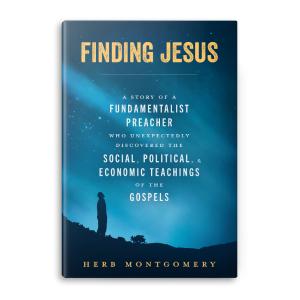Welcome readers! Please subscribe through the button on the right.
(Read this series from the beginning at Part 1 and Part 2.)

Luke’s angelic announcement to shepherds has many layers to it. Not only did it narratively serve to link Jesus’ liberation with those most harmfully impacted by Roman imperialism, it also fits nicely with the language this week’s passage draws from Micah. Micah’s liberator would be a “shepherd-king”:
“Therefore Israel will be abandoned
until the time when she who is in labor bears a son,
and the rest of his brothers return
to join the Israelites.
He will stand and shepherd his flock
in the strength of the Most High,
in the majesty of the name of the Sovereign God.
And they will live securely, for then his greatness
will reach to the ends of the earth.
He will be our peace . . . he will rule . . . he will deliver . . .” (Micah 5:3-6, emphasis added.)
All of this associated Jesus with God’s imperial reign, which was symbolized by the restoration of David’s Kingdom. David was also a shepherd-king: his pre- coronation occupation was a shepherd.
Luke aligns Jesus and his liberation not with the centered and powerful, but with the marginalized and powerless rural communities being harmed most by the imperial rule of Rome.
There are so many similar layers to Luke’s version of the birth and infancy narratives of Jesus that it really is a narrative masterpiece when read through the lens of social justice.
There is no room for Jesus to be born that night in an inn or a bed. Instead he’s born in the marginalized stable out back. From that point forward, the story of this child marks a dramatic shift and hope for those marginalized in their society, including those marginalized and disenfranchised today.
Some of our more contemporary Christmas carols echo this theme. One example is “O Holy Night,” a carol whose lyrics Placide Cappeau wrote in 1843:
“Truly He taught us to love one another;
His law is love and His gospel is peace.
Chains shall He break for the slave is our brother;
And in His name all oppression shall cease.”
I know that many expressions of Christianity today have been and continue to be complicit with oppression. Others are not. But we have not always lived out the lyrics of this carol. Too often, Christians have been at the center of oppressions for vulnerable people: women, indigenous populations, slaves, the poor, and our LGBTQ friends and family.
This Christmas my heart longs for us to do better. Can we, today, find ways of following Jesus that genuinely do end oppression and come alongside others also working to end it. What does my Christianity need to look like to be life-giving to those presently being harmed? What differences do I need to choose for my Jesus-following to aid and help, to contribute rather than become an obstacle to the work of ending injustice, violence, and dehumanizing violations of everyone’s human rights? Will that carol ever ring true, that in Jesus’ name, all oppression will cease?
There is much to be thankful for this Christmas season, and I’m reminded once again that, in the spirit of a baby who was born in a manger, whose birth announcements were sent to blue-collar workers who were politically, socially, and economically marginalized, we’ll still have a lot of work to do in the coming year.
Here’s to a celebration of Jesus’ birth that doesn’t last just one day a year, or even just one season during the year, but rather celebrates him in the form of a life lived every day in harmony with the belief that when it comes to those pushed to the undersides and edges of our society, this baby lying in a manger grows up to be an advocate for them.

Herb’s new book, Finding Jesus: A story of a fundamentalist preacher who unexpectedly discovered the social, political, and economic teachings of the Gospels, is now available at Renewed Heart Ministries.














